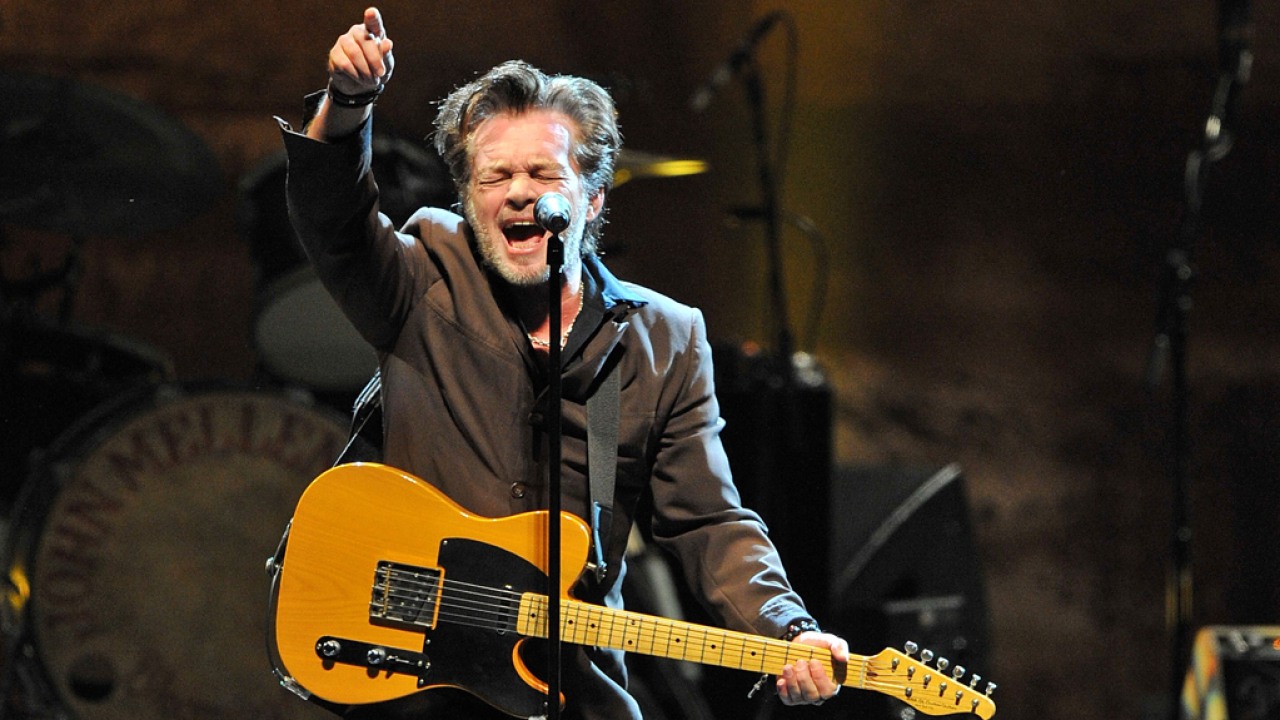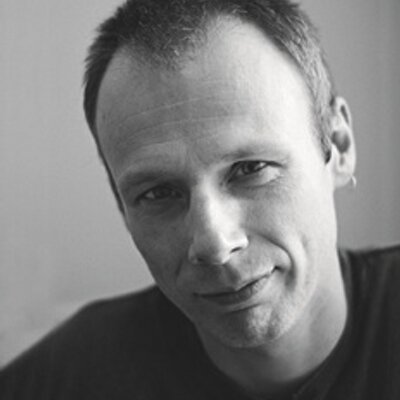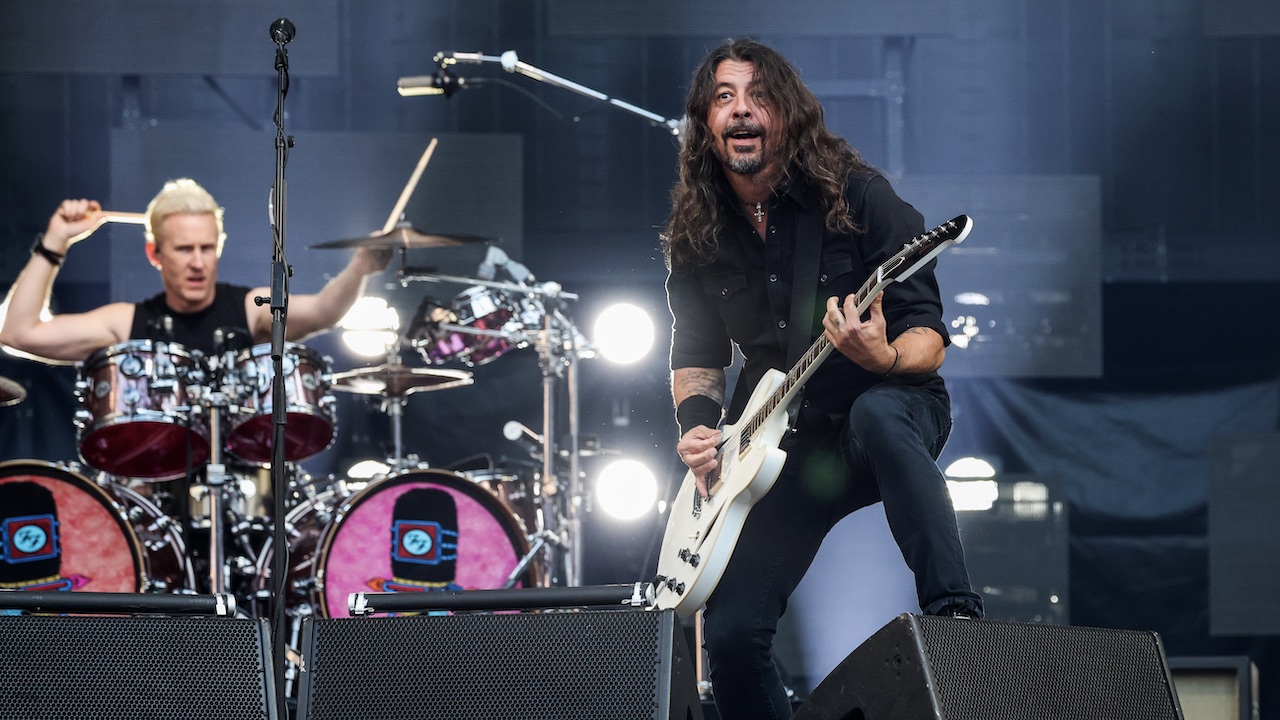Legacy: John Mellencamp
From Little Bastard to cranky old man to footnote?

Select the newsletters you’d like to receive. Then, add your email to sign up.
You are now subscribed
Your newsletter sign-up was successful
Want to add more newsletters?

Every Friday
Louder
Louder’s weekly newsletter is jam-packed with the team’s personal highlights from the last seven days, including features, breaking news, reviews and tons of juicy exclusives from the world of alternative music.

Every Friday
Classic Rock
The Classic Rock newsletter is an essential read for the discerning rock fan. Every week we bring you the news, reviews and the very best features and interviews from our extensive archive. Written by rock fans for rock fans.

Every Friday
Metal Hammer
For the last four decades Metal Hammer has been the world’s greatest metal magazine. Created by metalheads for metalheads, ‘Hammer takes you behind the scenes, closer to the action, and nearer to the bands that you love the most.

Every Friday
Prog
The Prog newsletter brings you the very best of Prog Magazine and our website, every Friday. We'll deliver you the very latest news from the Prog universe, informative features and archive material from Prog’s impressive vault.
After you’re gone, what sort of legacy will you have left?
The notion that anybody is going to care about who John Mellencamp was is folly. When you’re a young guy the whole idea is that you’re playing for your legacy. Then you get to be older and realise that there is no fucking legacy. Here’s what they’re going to remember: there was a band called The Beatles, a band called the Stones and this guy named Bob Dylan. That’s it. As big a statement as we all thought The Clash were making? Get in line, guys, you’re just a footnote like the rest of us.
Yet for your last album, No Better Than This, you used such historic locations as Sun Studios in Memphis and the hotel room in San Antonio, Texas where Robert Johnson recorded. Surely you were intent on making some kind of timeless statement?
Never talked about it, never thought about it. The idea of using those locations was: I’m in the vicinity and wouldn’t it be great to go there? I will tell you that there was a special atmosphere at each of those places. Particularly at Sun Studios at 3am when the rest of the world is asleep and quiet. You walk outside and you can’t hear a car, nothing. The mosquitos were all over us. It’s fantastic.
What do you make of the state of rock’n’roll today?
Oh, I think rock’n’roll is over. There’ll never be another Beatles, Dylan or Johnny Cash. There’s not gonna be another resurgence of something like punk or grunge to save the music business. It’s all done. The record companies decided to turn their backs on established artists such as myself and started chasing girls in stretch dresses. Which is fine. Guys like me became trophies on a shelf; we were too expensive to operate. But they could get sixteen-, seventeen-year-old girls to come in, whose moms and dads were their managers, and steal everything from them in the same way they did from the black artists in the twenties and thirties. And then there’s the internet, which I think is the most dangerous invention since the atomic bomb. The internet allows people to steal music.
So you feel like one of the last men standing?
Sign up below to get the latest from Classic Rock, plus exclusive special offers, direct to your inbox!
Sure. Even within my own generation. When I started out there were a lot of guys, but now there’s just a handful of us left – Tom Petty, Elvis Costello, Springsteen, me.
Rock’n’roll is supposed to be a young man’s game, yet some of the most challenging music recently has come from your generation.
See, in the sixties and seventies, people thought that it wasn’t going to get any better than this. For me it’s no problem being better now than when I was kid, because I was horrible. I went from Indiana to New York to get into art school, and I had a demo tape. I was a bar-room singer; I sang whatever was popular in the bars in town. It never dawned on me that I was going to try to make a living, or even make records. I was singing cos I could and because there were girls. The idea of planning out what I was going to be doing to this age… I wasn’t even going to live to this age. Then I got a record deal and it was like: “Oh fuck, you want me to write songs?” All my early records are me learning to write songs. I mean, I’ve come further than Springsteen, Petty or anybody. I may not be as good as they are, but I’m better than most.
Early on you got the nickname Little Bastard. Was it accurate?
In the eighties I had a record producer named Don Gehman. His responsibility was really just to keep me from going crazy all the time. Back then I was very highly strung and very angry. I was always mad at somebody and fighting and screaming – not a pleasant person. So this guy’s job was to go: “John, you’re out of line.”
What were you so angry about?
I think it’s in my DNA. I grew up around a bunch of angry men. My dad, my grandfather and my uncles were all that way. You fucked with these guys then you had to pay, it was that simple. They would just grunt at you and smack you. There was no normal, rational conversation, it was just: “Shut the fuck up,” and bang! My thought was that I was going to try to be a better man. But I found out in my thirties that maybe I wasn’t. Now, I don’t do that kind of stuff… very much. I’m more of a cranky old man.
Was there ever a point in your life where you felt indestructible?
Yeah. And I still feel that way sometimes today. But during that period from the Scarecrow record [1985] to_ Big Daddy_ [1989] I thought I was bulletproof. Then I had a heart attack. Man, I was pissed off with that. For the next two, three years I didn’t do anything but stay at home and raise my two boys. Those were the best years of my life.
What’s next?
I’m still interested in a lot of things. I think that’s a problem for a lot of people – they just lose interest in life. The older I get, the less afraid I am of death. Are we going anywhere after here? I don’t know and I don’t really care. If there is an afterlife, I’ll find out. If not, well, I’ve had a good ride.
Paul Rees been a professional writer and journalist for more than 20 years. He was Editor-in-Chief of the music magazines Q and Kerrang! for a total of 13 years and during that period interviewed everyone from Sir Paul McCartney, Madonna and Bruce Springsteen to Noel Gallagher, Adele and Take That. His work has also been published in the Sunday Times, the Telegraph, the Independent, the Evening Standard, the Sunday Express, Classic Rock, Outdoor Fitness, When Saturday Comes and a range of international periodicals.

